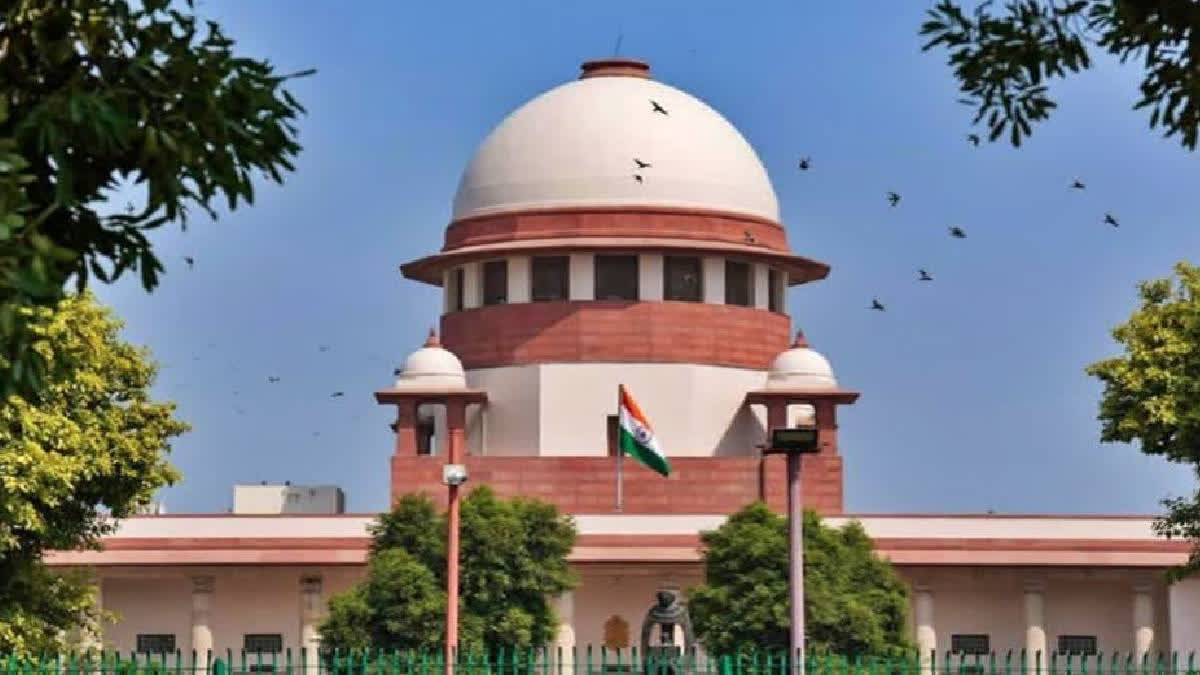New Delhi: A two-judge bench of the Supreme Court delivered a split verdict on Monday on the plea of a Christian man from Chhattisgarh's Bastar region seeking the burial of his father who died a natural death on January 7 either in the burial ground of their native Chhindwada village or on his private agricultural land.
The bench comprising Justices B V Nagarathna and Satish Chandra Sharma delivered a verdict on the plea filed by Ramesh Baghel, who moved the apex court challenging a Chhattisgarh High Court order.
The high court had disposed of his plea seeking the burial of his father, Subhas Baghel a pastor, in the area specified for the burial of Christians in the village graveyard. Baghel said while villagers had "aggressively objected" to the burial, police threatened him with legal action. Subhas died due to old age complications on January 7. Since then his body has been kept at a mortuary in Jagdalpur.
In her verdict, Justice Nagarathna allowed Baghel’s plea to bury his father on his private property. However, Justice Sharma did not agree with her opinion and held that the burial could be held only in the area designated for Christians, which is located 20 to 25 km from the petitioner’s native place.
The two-judge bench did not refer the matter to a three-judge bench and directed that the petitioner bury his father at the Christian burial ground located 20-25 km from his native village. The bench ordered the state government and the local authorities to provide the petitioner with all logistical support and adequate police protection.
Justice Nagarathna said the matter was about petitioner's father being accorded a dignified burial. Criticizing the local authorities in the village, as the petitioner could not bury his father as per his wishes, Justice Nagarathna said such an attitude of the local authorities at the village level or higher level "indicates betrayal of the sublime principle of secularism and glorious traditions of our country".
“Secularism together with the concept of fraternity…is a reflection of harmony between all religious faiths leading to common brotherhood and unity of the social fabric in the country," said Justice Nagarathna.
Justice Sharma said he was unable to agree with the opinion of Justice Nagarathna. “An identified area serves the purpose of ensuring a systemized procedure of conducting last rites by paying due deference to the surrounding sensitives….earmarking of designated areas for every community in every village is an evolutionary process that is not perfect and slow-moving," said Justice Sharma.
“Thus, with respect, I am unable to appreciate the need to exercise equitable jurisdiction … and permit the petitioner to bury the remains of his father on his private land. More so, a burial ground within the vicinity is present merely 20-25 km," said Justice Sharma.
He emphasized that the procedure to perform last rites forms a part of rights protected under Part III of the Constitution, however, to claim such rights would encompass the unqualified right to choose a place of such ceremony, including burial, and would prima facie appear to stretch Constitution limits beyond what was envisaged.
“It is well settled that rights protected under Article 21, are subject to procedures established by law….right to profess, practice religion under Article 25 is ex-facie subject to public order….”, said Justice Sharma. The detailed judgment on the matter will be uploaded later in the day.
Earlier this month, the Chhattisgarh High Court, relying on a certificate issued by the gram panchayat's sarpanch claiming there were no separate burial grounds for Christians, had denied the permission for burial underlining it could cause unrest and disharmony in the public at large.
According to Baghel, his village had a graveyard which was verbally allotted by the gram panchayat for burial and cremation of bodies. In the graveyard, separate areas were demarcated for burial of tribals; burial or cremation of people belonging to Hindu religion and for persons belonging to the Christian community.
The plea said the petitioner and his family members wanted to hold the man's last rites and bury his mortal remains in the area specified for Christian persons in the graveyard.



